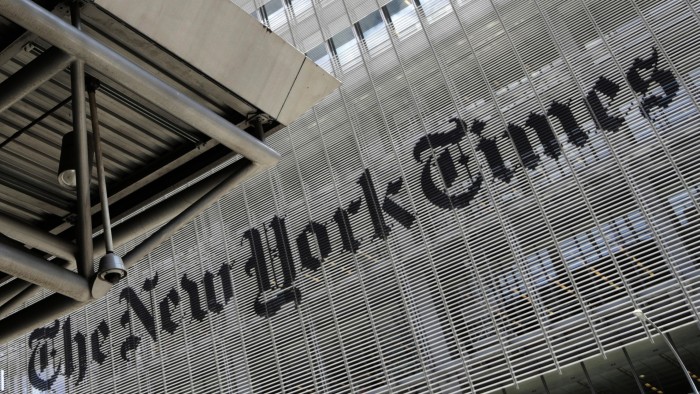Unlock the Editor’s Digest for free
Roula Khalaf, Editor of the FT, selects her favourite stories in this weekly newsletter.
The New York Times has agreed to license its editorial content to Amazon, marking the first time the news giant will allow its stories to train a tech company’s artificial intelligence models.
The deal allows for summaries and short excerpts of NYT stories and cooking recipes to be used by Amazon products, such as Alexa speakers, and to train its proprietary AI models.
The companies did not give financial terms of the deal.
The agreement comes as the NYT continues its legal battle with OpenAI and Microsoft after the paper sued them in 2023 for “massive copyright infringement”.
The NYT is seeking billions of dollars in damages from the tech groups for allegedly using millions of their articles to build the models underlying OpenAI’s ChatGPT.
In an internal memo to staff on Thursday, NYT chief executive Meredith Kopit Levien said the deal with Amazon “is consistent with our long-held principle that high-quality journalism is worth paying for”.
“It aligns with our deliberate approach to ensuring that our work is valued appropriately, whether through commercial deals or through the enforcement of our intellectual property rights,” she said.
Shares in the New York Times initially rose more than 3 per cent on Thursday morning. Shares are up 8 per cent this year, outperforming the wider stock market.
Media groups have grown increasingly wary that generative AI models — which can churn out humanlike text, images and code in seconds — use their content without permission or payment.
Amazon’s proprietary models lag behind the technical capabilities of OpenAI’s equivalent, though it has focused on lowering cost. The ecommerce giant has also invested around $8bn in start-up Anthropic, whose Claude models compete more directly with those from OpenAI. The company is releasing an array of AI-enabled products including its Alexa Plus voice-enabled assistant.
In recent years several media groups have struck licensing deals with OpenAI — including News Corp, Axel Springer and the Financial Times. These agreements have brought in tens of millions of dollars for publishers. However, in private conversations, some news executives say they view these deals as temporary measures as they wait for a long-term legal framework to be established.
OpenAI said the NYT suit was “without merit” and that the newspaper was not “telling the full story”. Copyright is a problem for AI companies such as OpenAI, whose models depend on gobbling up massive amounts of information from across the internet.
News organisations are also grappling with fears that their jobs could be replaced by AI. Business Insider on Thursday announced it would cut about a fifth of staff, while signalling it was going “all-in on AI”.
